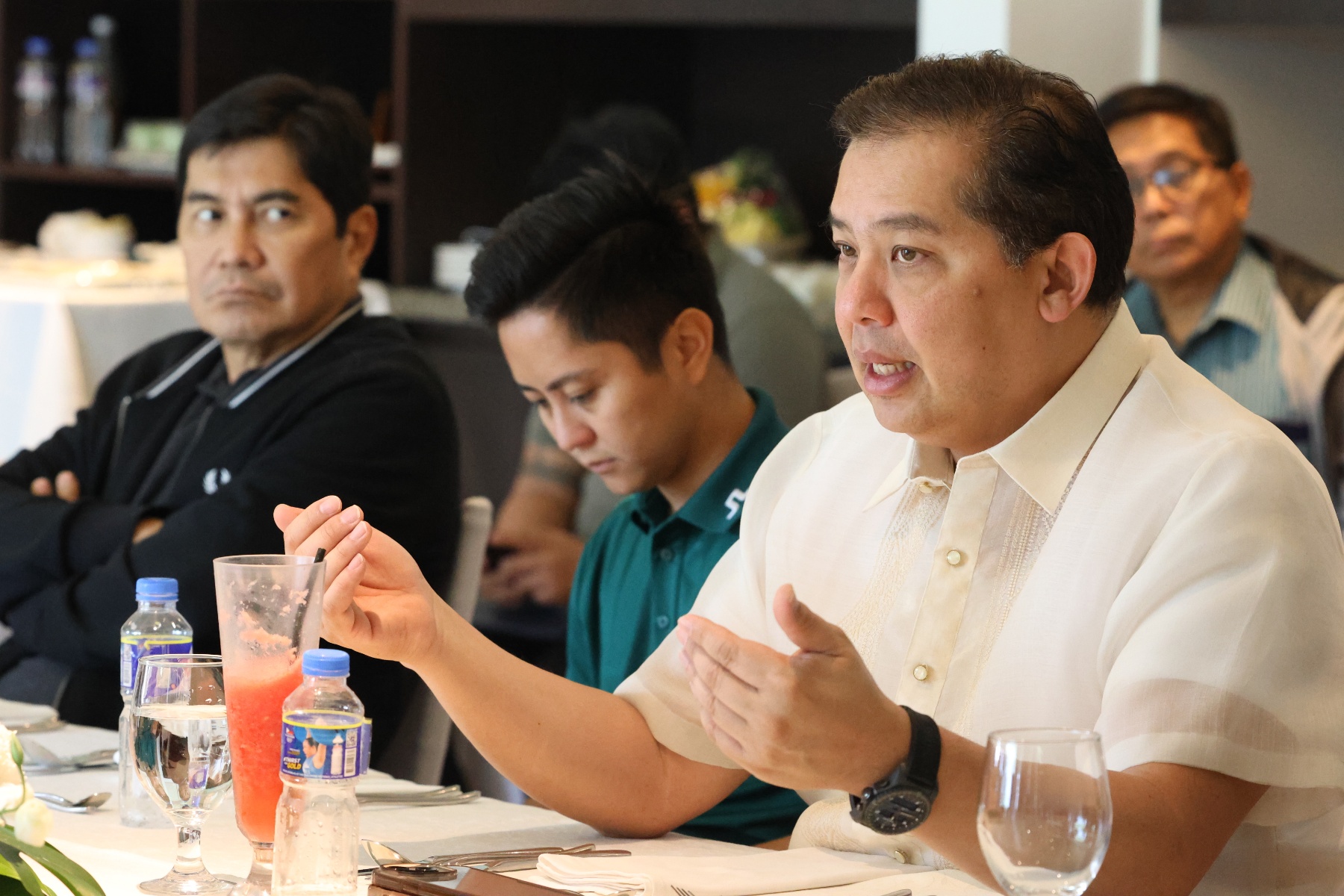PH shouldn't be 'prisoners of the past'; ditch economic restrictions in Charter--Romualdez
At A Glance
- The Philippines shouldn't be "prisoners of the past" when it comes to the outdated and restrictive economic provisions of the 1987 Constitution, said House Speaker Martin Romualdez.
 House Speaker Martin Romualdez (Speaker’s office)
House Speaker Martin Romualdez (Speaker’s office)
The Philippines shouldn't be "prisoners of the past" when it comes to the outdated and restrictive economic provisions of the 1987 Constitution.
Thus, said House Speaker Martin Romualdez as he once again made a case for the lifting of such provisions in the Charter. He said that doing so would attract more foreign direct investments (FDIs), create jobs, open income opportunities for Filipinos, and spur development.
“As a nation, we can ill afford to be prisoners of the past; we must be architects of our future. The call for change is both loud and clear, and the time to act is now. With your support, your advocacy, and your belief in a brighter tomorrow, we can take this monumental step forward,” Romualdez said in his message during the recent Philippine Constitution Association (Philconsa) Day and Senate Night at the Fairmont Raffles Hotel Ballroom, Makati City.
“In summary, our Constitution, as noble and well-intentioned as it is, has elements that are no longer adaptive to our needs,” said Romualdez, leader of the 311-member House of Representatives and president of the Philconsa.
Romualdez was referring to the following: Article XII, Section 10, mandating a 60-40 ownership in favor of Filipinos in the development of natural resources; Article XVI, Section 11, limiting mass media ownership exclusively to Filipino citizens; and Article XII, Section 11, capping foreign ownership of land.
“Amending these provisions isn't just a matter of law—it's about transforming the opportunities available to every Filipino. It's about catalyzing a new era of prosperity, characterized by more robust economic growth, technological advancement, job creation, and ultimately, a better quality of life for each and every citizen,” said the Speaker.
He pointed out that although these provisions were drafted with patriotic intentions, these regulations have unintended adverse consequences, such as limiting job creation, among others.
“Countries like Vietnam and Indonesia have been welcoming foreign direct investments with open arms and reaping substantial benefits, mainly through job creation. We, on the other hand, have missed out on these opportunities due to our stringent regulations,” said the Leyte 1st district representative.
He noted that according to the World Bank (WB), the Philippines' FDI net inflows grew by an average of just 3.9 percnet between 2010 and 2019, compared to that of Vietnam at 7.6 percent and Indonesia at 9.4 percent. In addition, he said the World Economic Forum's Global Competitiveness Report in 2019 placed the Philippines at 64th out of 141 countries.
“These aren't just numbers; they are indicators of lost opportunities,” Romualdez said.
He said limited FDI inflow also deprives the Philippines of essential capital and expertise needed for nationwide development and puts the country at a severe disadvantage in terms of its ability to attract investments in technology as well as in research and development.
“Fewer players in the market mean less competition, leading to higher prices for ordinary consumers. This affects everything from the food on our table to the quality of the internet we use,” he explained.
The House of Representatives has made strides in the pursuit of Charter Change (Cha-cha) with the approval of Resolution of Both Houses 6 (RBH 6) and House Bill (HB) No.7352 last March.
RBH 6 calls for a constitutional convention to propose amendments or revisions to the 1987 Constitution while HB No.7325 details the procedures for changing the charter through a hybrid constitutional convention, whose members will be made up of appointees from Congress and delegates from each district selected by voters through an election.